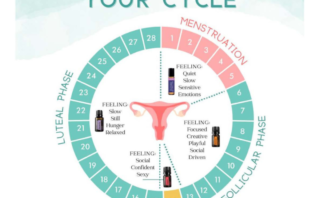Do You Experience Heavy Menstrual Bleeding?
As with any menstrual symptom you may be experiencing, we need to ask – WHY is this showing up? Why are you experiencing heaving bleeding/periods?
What first comes to mind is the estrogen and progesterone balance, structural reasons, nutrient deficiencies and gut health.
Heavy Menstrual Bleeding is Also Called Menorrhagia
Your period is considered heavy if:
- it lasts more than 7 days
- >80 ml during a given period
- bleeding through super protection products
Reasons for Heavy Bleeding
Structural:
- Endometriosis
- Ovarian cysts
- Fibroids
This can be diagnosed with your doctor, typically through a pelvic ultrasound. 
Hormonal:
- Estrogen Dominance – estrogen high in relation to progesterone, which could look like –
- Elevated estrogen, normal progesterone
- Elevated estrogen, low progesterone
- Normal estrogen, low progesterone
- Normal estrogen, normal progesterone but low Pg/E ratio
- Poor estrogen metabolism (happens in the liver) – can see heavy bleeding with preferring the 16-OH 1 estrogen metabolism pathways (this can be determined with a functional lab test)
- Hypothyroidism – can affect ovulation/progesterone
- Not ovulating – leads to low progesterone
Nutrient deficiencies:
- That play a role in estrogen metabolism like B vitamins, magnesium, amino acids
- Iron deficiency can be seen with heavy blood loss
When I have a client with heavy periods, I look into:
- Estrogen/progesterone balance (with functional lab testing)
- Estrogen metabolism – does yours prefer the inflammatory 4-OH pathway or the 16-OH pathway (this can be experienced as more period pain/heavy bleeding)
- Is ovulation happening
- What does your cycle symptom and tracking show
- Inflammatory markers
- Nutrient deficiencies
- Exercise
- Stress
- Sleep
- Blood sugar balance
- and more!
Functional lab testing helps us assess your estrogen and progesterone levels, uncover potential estrogen dominance and look at your estrogen metabolism, because sometimes there’s something going on with these hormones with heavy periods.





